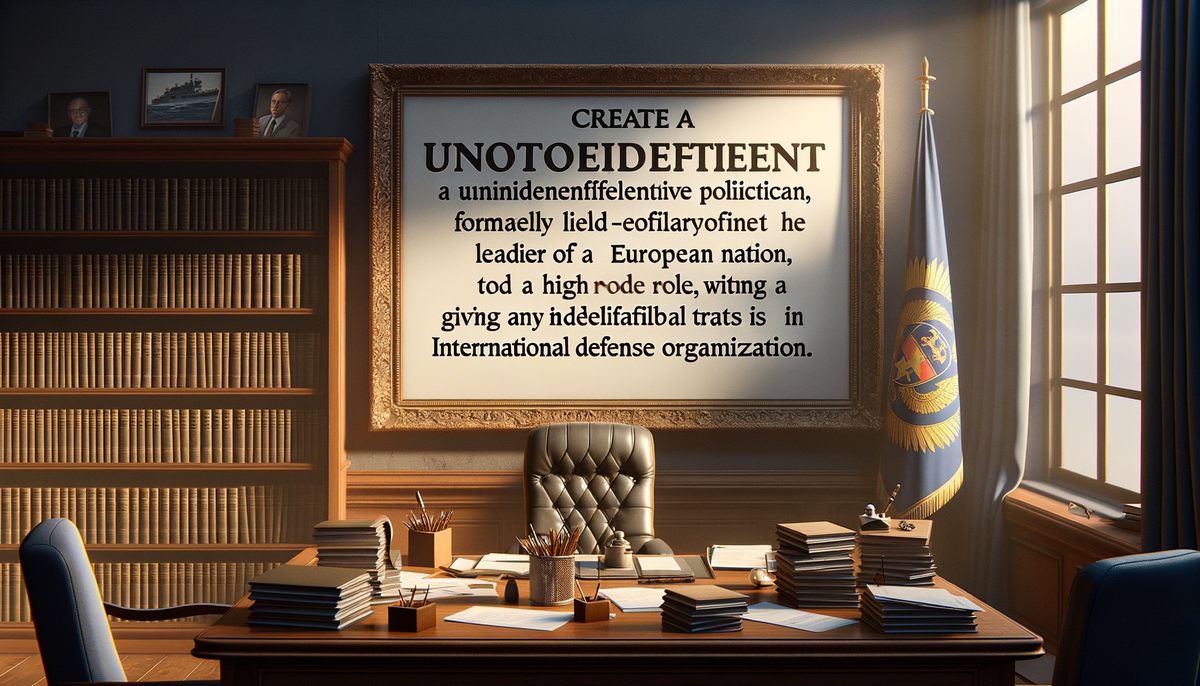Mark Rutte: Navigating Politics and Ascending to NATO Leadership
Explore the inspiring journey of Mark Rutte, from Dutch Prime Minister to influential NATO Secretary General, highlighting his strategic leadership and dedication to democratic values.

Mark Rutte: Navigating Politics and Ascending to NATO Leadership
Mark Rutte, a name synonymous with Dutch politics, has made a significant impact on both national and international stages. As one of the most prominent figures in European politics, his journey from Prime Minister of the Netherlands to becoming NATO's Secretary General is a testament to his leadership capabilities and diplomatic prowess.
Background and Early Career
Born on February 14, 1967, in The Hague, Mark Rutte began his career at Unilever as a human resources manager responsible for staff training and organization. His transition to politics marked the beginning of a remarkable career that would span decades and influence global politics profoundly.
Premiership of the Netherlands
Rise to Power and Leadership
Rutte became the Prime Minister of the Netherlands on October 14, 2010, at the age of 43, making history as the first liberal to hold the office since 1918. Under his leadership, the People’s Party for Freedom and Democracy (VVD) became a dominant force in Dutch politics.
Key Cabinets and Coalitions
- First Rutte Cabinet (2010–2012): A coalition government that included the VVD, CDA, and support from Geert Wilders' PVV. This cabinet collapsed when Wilders withdrew his support over budget cuts.
- Second Rutte Cabinet (2012–2017): Formed in coalition with the Labour Party (PvdA), it continued Rutte's agenda of liberal economic policies.
- Third Rutte Cabinet (2017–2022): Created in partnership with D66, CDA, and CU, Rutte maintained his commitment to fiscal conservatism and EU integration.
- Fourth Rutte Cabinet (2022–2024): Also with D66, CDA, and CU, this government ultimately resigned in July 2023 over migration policy disagreements.
Throughout his tenure, Rutte was known for his fiscal conservatism and support for EU's austerity measures, making him a key advocate for democratic values within the EU, often opposing illiberal policies in countries like Hungary.
Major Political Events and Policies
Rutte's political career was marked by several resignations due to crises such as the child welfare scandal, yet he persevered, showcasing his resilience in the political arena. His pragmatic approach and ability to form coalitions were critical in navigating the eurozone crisis and the COVID-19 pandemic.
Secretary General of NATO
Appointment and Ascendancy
In October 2023, Rutte announced his candidacy for NATO's Secretary General. His candidacy quickly garnered substantial support from the United States, the United Kingdom, Germany, and France. After Romanian President Klaus Iohannis withdrew from the race, Rutte ascended to the position unopposed, beginning his tenure on October 1, 2024.
Rutte's approach to leadership at NATO focuses on strengthening alliances and ensuring collective defense mechanisms are robust against emerging global threats.
Legacy and Reputation
Mark Rutte is celebrated for his adaptability and capacity to maintain Dutch influence well beyond its size. His tenure as Prime Minister and now as NATO Secretary General highlights his chameleonic ability to form consensus among conflicting parties, emphasizing the importance of liberal democracy and the rule of law in Europe.
Noteworthy Details
- Rutte is notable as the first liberal Dutch prime minister in nearly a century.
- His leadership traversed significant European crises, including the eurozone financial difficulties and the global pandemic.
- He directly challenged authoritarian-leaning policies within the EU, advocating for human rights and democratic governance.
Conclusion
Mark Rutte’s career is a hallmark of political resilience and strategic leadership. His ability to navigate complex political landscapes both in the Netherlands and within NATO showcases a unique blend of pragmatism and consensus-building skills. For professionals looking to draw inspiration from his leadership style, the key takeaways lie in his dedication to fiscal responsibility, diplomacy, and a firm stance on democratic values.
As Rutte continues to lead NATO, the international community looks forward to seeing how he will steer the alliance through 21st-century challenges. This leadership shift highlights how adaptability and a strong ethical core can drive substantial political success.
For those interested in delving deeper into the political strategies of Mark Rutte, explore our detailed research and analysis.
ACT NOW: If you're inspired by Mark Rutte's leadership journey, consider how strategic political insights can benefit your organization. Contact our consulting team today to explore tailored solutions for political and business leadership.




